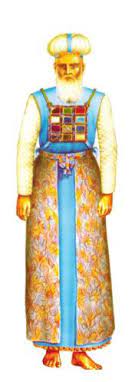There’s really no such thing as a kohein.
At least not the way we generally pronounce the word in conversation, with the accent placed on the first syllable. In the Torah, the stress is on the second syllable, a hint to the fact that the word is not a noun but rather a verb.
That is Rashi’s observation in the parsha (29:30), on the words hakohein tachtav, which can only be properly translated as ‘who ‘koheins’in his stead” – with kohein meaning “serves.” (The cantillation, Rashi notes, would not support translating the phrase as “who is a kohein in his stead.”)
That may be nothing more than an interesting grammatical observation. But it may also signal something deeper.
Kohanim, of course, derive their status from being descendants of Aharon. In the non-Jewish sphere, special roles can also be transferred genealogically, as in monarchies.
But the “divine right of kings,” whereby monarchs claimed authority that rendered them unaccountable for their actions by earthly laws and courts (a topic that remains germane, oddly, even today, even in democracies) could not be further from the divine role of kohanim. A kohein is as governed by the Torah’s laws as any other Jew.
Kohanim are verily defined as “servers,” as being charged to do Hashem’s will. They are not defined by a noun but a verb – referring to performing the acts they are commanded to perform.
To be sure, kohanim have a special status in Klal Yisrael and are deserving of honor. But their specialness is born of mission, not license or immunity.
Truth be told, every one of us is, each in his or her way, special, whether we happen to carry a particular title or are just the unique individuals each of us is. And we all are likewise defined not by our particular statuses or identities, but by our missions.
© 2024 Rabbi Avi Shafran
